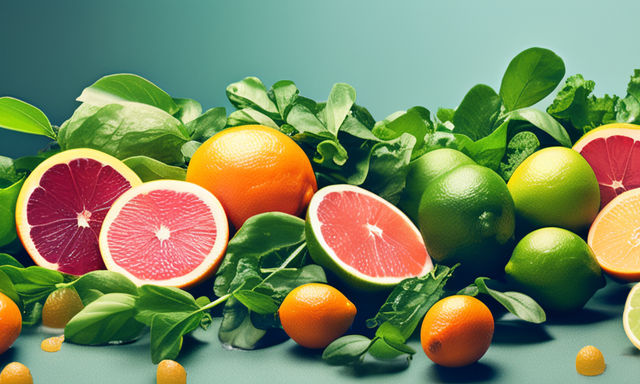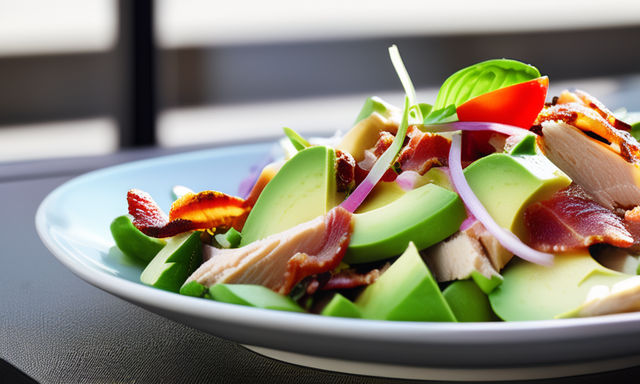Foods To Boost Your Immune System
Maintaining a robust immune system is key to staying healthy and warding off illness. While factors like adequate sleep, regular exercise, and stress management play crucial roles, your diet also plays a significant part in supporting immune function. Incorporating immune-boosting foods into your meals can provide your body with the nutrients it needs to fight off infections and keep you feeling your best. This article explores key foods known for their immune-boosting properties and how you can incorporate them into your daily diet to maintain optimal health.

The Foundation of Immune Health
The immune system is complex, involving a network of cells, tissues, and organs working in harmony to protect the body. It acts as a shield, defending against harmful pathogens such as bacteria, viruses, and parasites.
To function optimally, the immune system relies on various nutrients that support its different components and processes. These nutrients include:
-
- Vitamin C: This powerful antioxidant is essential for the production and function of white blood cells, which help combat infections. It also supports the skin's natural defenses against pathogens and aids in wound healing.
-
- Vitamin D: Known as the "sunshine vitamin," vitamin D plays a crucial role in immune function. It helps regulate the immune response and may reduce the risk of respiratory infections.
-
- Zinc: Zinc is involved in numerous cellular processes, including immune cell development and function. It helps regulate inflammation and plays a role in the production of antibodies, which are essential for fighting off infections.
-
- Selenium: Selenium is a trace mineral that acts as an antioxidant, protecting cells from damage caused by free radicals. It also supports the function of immune cells and helps regulate inflammation.
-
- Iron: Iron is necessary for the proper function of immune cells and the production of hemoglobin, which carries oxygen to tissues throughout the body. Iron deficiency can impair immune function and increase susceptibility to infections.
-
- Protein: Protein is the building block of immune cells, antibodies, and other molecules involved in the immune response. Adequate protein intake is essential for maintaining a strong and healthy immune system.
A deficiency in these nutrients can lead to compromised immunity and increased susceptibility to infections.
Top Immunity-Boosting Foods
1. Citrus Fruits: Rich in vitamin C, citrus fruits like oranges, grapefruits, lemons, and limes can increase the production of white blood cells, key players in fighting infections.
2. Bell Peppers: Surpassing even citrus fruits in vitamin C content, bell peppers are also a great source of beta carotene, which the body converts into vitamin A, essential for maintaining healthy mucosal barriers (skin, gut, and respiratory tract).
3. Broccoli: Packed with vitamins A, C, and E, as well as fiber and many other antioxidants, broccoli is one of the healthiest vegetables you can put on your plate.
4. Garlic: Found in almost every cuisine in the world, garlic is widely recognized for its immune-boosting properties, attributed to its heavy concentration of sulfur-containing compounds like allicin.
5. Ginger: Known for its anti-inflammatory and antioxidative properties, ginger can help reduce inflammation, which can help the immune system function more effectively.
6. Leafy Greens: Leafy greens like spinach, kale, and Swiss chard are packed with vitamins, minerals, and antioxidants that help strengthen the immune system. They're also rich in fiber, which supports digestive health.
7. Yogurt: Look for yogurts that have "live and active cultures" printed on the label, like Greek yogurt. These cultures may stimulate your immune system to help fight diseases and are also a great source of vitamin D.
8. Nuts and Seeds: Nuts and seeds are excellent sources of nutrients like vitamin E, zinc, and selenium, all of which play crucial roles in immune function. Incorporate a variety of nuts and seeds into your diet for optimal benefits.
9. Turmeric: Turmeric contains a compound called curcumin, which has potent anti-inflammatory and antioxidant properties. Adding turmeric to your meals or enjoying a soothing turmeric latte can help support immune health.
10. Green Tea: Packed with flavonoids, a type of antioxidant, green tea is also a good source of the amino acid L-theanine, which may aid in the production of germ-fighting compounds in your T-cells.
Incorporating these immune-boosting foods into your diet can help give your immune system the support it needs to keep you healthy and resilient. Remember to eat a varied and balanced diet rich in fruits, vegetables, whole grains, and lean proteins to ensure you're getting all the nutrients your body needs to thrive.
Incorporating Immune-Boosting Foods into Your Diet
Enhancing your diet with these immune-boosting foods doesn't have to be a chore. Simple strategies include:
- - Starting the Day Right: Begin with a breakfast that includes yogurt topped with fruits and nuts or seeds for a dose of probiotics, vitamins, and antioxidants.
- - Colorful Plates: Make your meals vibrant with a variety of vegetables and fruits, ensuring you get a broad spectrum of nutrients.
- - Healthy Snacking: Opt for snacks like almonds, sunflower seeds, or citrus fruits to keep your immune system fueled between meals.
- - Hydration with a Twist: Incorporate green tea into your daily fluid intake for its added immune-boosting benefits.

Explore Our Immune-Boosting Meal Plans
Looking for convenient ways to incorporate immune-boosting foods into your daily meals? Check out our 7-Day Immuno-Supportive 2000 kcal Plan! This plan is designed to provide a balanced and nourishing diet rich in essential nutrients to support your immune system. With a focus on foods high in vitamin C, vitamin D, zinc, selenium, iron, protein, and fiber, this plan is your ticket to optimal health.
Start fueling your body with the nutrients it needs to thrive – click here to explore the plan now!
Disclaimer: Always consult with a healthcare professional before making significant changes to your diet or lifestyle, especially if you have any underlying health conditions or concerns. The information provided in this article is for educational purposes only and should not be construed as medical advice.
References
1. Munteanu C, Schwartz B. The relationship between nutrition and the immune system. Front Nutr. 2022 Dec 8;9:1082500. doi: 10.3389/fnut.2022.1082500. PMID: 36570149; PMCID: PMC9772031.
2. Calder PC. Foods to deliver immune-supporting nutrients. Curr Opin Food Sci. 2022 Feb;43:136-145. doi: 10.1016/j.cofs.2021.12.006. Epub 2021 Dec 18. PMID: 34976746; PMCID: PMC8702655.
3. Nutrition and immunity. (2022, December 5). The Nutrition Source. https://www.hsph.harvard.edu/nutritionsource/nutrition-and-immunity/
4. RDN, K. W. (2022, November 16). Fight off the flu with immune-boosting nutrients. Mayo Clinic Health System. https://www.mayoclinichealthsystem.org/hometown-health/speaking-of-health/fight-off-the-flu-with-nutrients
5. Harvard Health. (n.d.). Micronutrients have major impact on health. Retrieved April 20, 2020, from https://www.health.harvard.edu/staying-healthy/micronutrients-have-major-impact-on-health
6. Nieman, D. C., & Wentz, L. M. (2019). The compelling link between physical activity and the body’s defense system. In Journal of Sport and Health Science (Vol. 8, Issue 3, pp. 201–217). Elsevier B.V. https://doi.org/10.1016/j.jshs.2018.09.009
7. Irwin, M. (2002). Effects of sleep and sleep loss on immunity and cytokines. Brain, Behavior, and Immunity, 16(5), 503–512. https://doi.org/10.1016/S0889-1591(02)00003-X
Ready to level-up?
Create meal plans 10x faster, follow up with your clients through our mobile app, and never struggle with meal planning or recipe management again.